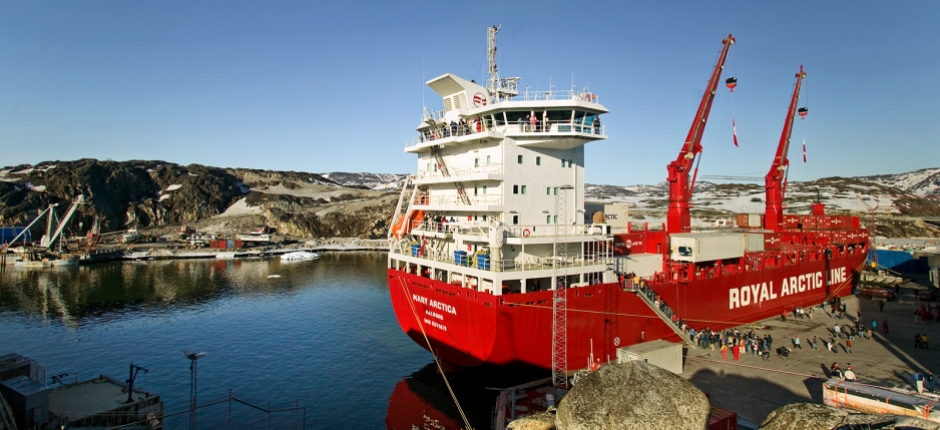Greenland shipper plans to break Danish port contract

Long goodbyes are turning out not to be Verner Hammeken’s specialty. Since taking over as managing director of Royal Arctic Line, Greenland’s nationally controlled seaborne freight company, in August 2015, Hammeken has taken a number of steps aimed at eliminating the firm’s interests in Denmark.
The moves, which include cutting three Danish subsidies, had been widely expected to culminate with the announcement that Royal Arctic Line would not continue to use the Port of Aalborg, Denmark, as its main international port after the current contract expires in 2022.
The primary motivation for the withdrawal from Denmark is the construction of a modern port facility in Nuuk, which would eliminate the need to transfer cargo in Aalborg before sending it on to destinations in Greenland.
Today, however, Hammeken announced that Royal Arctic Line would stop using Aalborg starting in 2019. The decision end the contract early comes after an agreement this May, in which Royal Arctic Line and Eimskip, an Icelandic shipper, agreed to share capacity.
Under the agreement, Royal Arctic Line will transport Greenlandic cargo from Nuuk to Reykjavík. From there, Eimskip ships will sail cargo to Rotterdam, Europe’s busiest container terminal.
For exporters, this will result in less time to market. The shorter travelling time, it is hoped, will make it possible to produce a wider range of goods in Greenland.
Consumers, Hammeken told Greenlandic media, will also benefit in the form of lower prices and access to a wider range of imported goods. A similar manoeuvre in the Faroe Islands, also a part of the Kingdom of Denmark, reduced the volume of Danish imports from 90 percent to 60 percent, he said.
The Port of Aalborg does not contest Royal Arctic Line’s right not to renew the contract, but it warned that it would not accept the company’s decision to break the contract early, arguing that after the most recent contract renewal, in 2010, the port’s owners made large investments to improve the port.
Ending the contract early, port representatives said today, would cost jobs and deprive the port of revenue needed to pay for the improvements.
Hammeken later explained in a statement that his primary concern was Greenland’s development, not the port’s finances.
“As a company, it is our duty to come up with strategies and make plans based on what we feel will best support economic growth in Greenland.”
Parting is not such sweet sorrow after all.